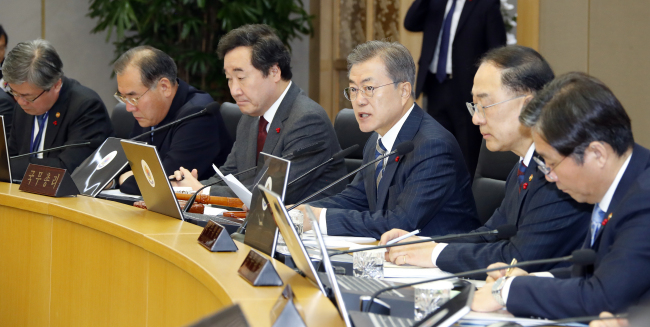您现在的位置是:半岛新闻网 > 行业动态
John Bolton’s The Room Where It Happened is a searing indictment of John Bolton.
半岛新闻网2024-09-22 07:15:11【行业动态】1人已围观
简介When President Donald Trump fired John Bolton as his national security adviser in September 2019, I
When President Donald Trump fired John Bolton as his national security adviser in September 2019, I wrote, “We may at last have in Bolton a piece of scorched debris from Trump’s inner circle disgruntled and disloyal enough to write a scathing tell-all memoir.” And now here it is. The Room Where It Happened(out Tuesday) is every bit the flame job that the advance news stories indicated. But it’s also, unwittingly, an indictment of Bolton himself—as warmonger, self-aggrandizer, deceiver, at times a shrewd bureaucratic operator, at other times stunningly blind to the politics around him, and, in any case, a man whom no future president should hire to walk his dog, much less help guard the nation.
AdvertisementBolton has long drifted on the outer edge of our right-wing foreign policy elite. Often tagged a neocon, he’s actually more a 19th-century imperialist, obsessed with imposing American power on the world, not so concerned about spreading democracy. His stints under President George W. Bush were bizarre: The first was as undersecretary of state for arms control, even though he’d never read an arms control treaty that he liked. (His main job was to serve as Vice President Dick Cheney’s spy, reporting back when Secretary of State Colin Powell came too close to succeeding at diplomacy.) Then he served as U.N. ambassador, even though he was hostile to the U.N. and opposed international law, on principle. (Bush, who put him there as a recess appointment, booted him when it was clear that the Senate was going to vote down his nomination.)
Trump hired him as his third national security adviser (a job that doesn’t involve Senate confirmation) after watching his regular commentaries on Fox News. Bolton had every reason to assume that Trump shared his views—and, quite likely, he did, until he didn’t. That’s when he got rid of Bolton, who even now doesn’t seem to get why.
Bolton’s top priorities in the White House were to make sure Trump didn’t sign a deal with North Korean leader Kim Jong-un or backpedal on his withdrawal from the Iran nuclear deal. Bolton despises the nuclear deal, which Iran signed in 2015 with then-President Barack Obama and the leaders of five other countries. In his book, he repeatedly calls it a “wretched” deal, though he never feels the need to explain why. Four-fifths of the way into the book, on page 391, he lets the reason for his reticence slip. Describing a discussion he had with two Pentagon officials over whether to try negotiating a new deal, he writes (italics added):
Advertisement Advertisement Advertisement AdvertisementI argued again that … there would be no “new” Iran deal and no “deterrence” established as long as Iran’s current regime remained. You could like it or not, but basing a policy on some other reality would not get us to any “end state” we sought.
And there you have it. Bolton didn’t like the Iran nuclear deal—wouldn’t like any nuclear deal, or deal of any sort, with Iran—because it was with Iran. For Bolton, the only sound policy toward Iran is regime change, meaning any other policy is unacceptable. He had an ally in this view with Secretary of State Mike Pompeo—and, it seemed, with Trump. But then, toward the end of the book (and the end of Bolton’s tenure), Trump started saying he wantedto make a new deal with the Iranians; he thought that the Iranians wanted to make a deal too (probably untrue, unless Trump lifted sanctions, which he wasn’t willing to do). Bolton writes that he opposed the notion so fervently that he planned to resign if Trump so much as scheduled talks with Iran’s foreign minister.
AdvertisementBolton gives away the game when he complains, at one point, that the Iranians were about to violate the nuclear deal. The violation took place in response to, and several months after, Trump’s withdrawal from the accord. But if the deal was as “wretched” as Bolton claims, why was he concerned that Iran was about to violate it? It’s all a pretense; for Bolton, the deal was bad only because it left the regime standing.
AdvertisementHe plays similar games in his chapter on Trump’s strange relationship with Kim. I share Bolton’s bewilderment at the president’s flowering bromance with the world’s most brutal dictator—and his worry that, left alone with the clever tyrant, Trump might sign a deal that helps only Kim while rupturing our alliances throughout East Asia. But, as with Iran, Bolton vociferously opposed even trying to make a deal. He dismisses the efforts of Trump’s special envoy to North Korea talks, Steve Biegun, on the grounds that Biegun tried to negotiate a “step-by-step” deal (the North destroys some nuclear weapons, the U.S. lifts some sanctions, the North destroys some more, we lift some more … ), whereas Bolton wanted a “big bang” deal (the U.S. doesn’t lift any sanctions until the North dismantles its entire nuclear apparatus). Bolton knew that the North would never agree to a big bang but might accept some form of step-by-step deal, which would only distract from what Bolton thought was the only way to deal with Kim’s threat—destroying the regime, either through total economic isolation (unlikely, given North Korea’s alliance with China) or, better still, bombing the place to smithereens.
Advertisement Advertisement Advertisement AdvertisementBolton offers very detailed, occasionally fascinating accounts of Trump’s two summits with Kim, in Singapore (which ended with a meaningless joint declaration) and in Hanoi (which collapsed in failure, since which time no talks have occurred at all). But Bolton doesn’t seem to grasp the significance of what happened in Hanoi. Kim arrived with one offer: he would dismantle the Yongbyon nuclear site if Trump lifted all sanctions that had been imposed since 2006 (those were the ones that took a bite). Trump rejected the proposal, with good reason: Yongbyon was hardly Kim’s only reactor. But, as Bolton notes, Trump then made some counteroffers: How about if the U.S. lifted someof the sanctions? Or how about if Kim added one more element—say, a ban on producing intercontinental ballistic missiles? Kim turned those ideas down.
AdvertisementIn other words, Bolton viewed the outcome of Hanoi as a relief, but there almost was a deal—there would have been, if Kim hadn’t been so inflexible—and Trump came away still wanting some deal. Not long after Hanoi, on his way back from a G-20 meeting, Trump held an impromptu meeting with Kim near the Demilitarized Zone separating North and South Korea. He also directed Biegun to keep trying to reach a deal with Kim’s negotiators.
AdvertisementEarly in the book, Bolton trashes former Secretary of Defense James Mattis as an “obstructionist” for pursuing his own agenda, contrary to Trump’s policies, which Bolton mainly favored. But toward the end of the book, Bolton becomes the obstructionist, though he doesn’t see it that way: To his mind, from beginning to end, he’s just trying to save the country and the world from Trump’s capriciousness (which is how Mattis viewed his maneuverings too).
AdvertisementThrough much of the story, Pompeo and Gen. Joseph Dunford, chairman of the Joint Chiefs of Staff, sometimes joined Bolton in his campaign, especially in helping persuade Trump to keep some U.S. troops in Syria. But toward the end, Bolton found himself on the outs—Pompeo, who was far more attuned to Trump’s true desires, no longer joined him in his schemes—and the funny thing is, Bolton didn’t, and still doesn’t, know it.
AdvertisementAt one point, Bolton is complaining to Pompeo about Biegun’s efforts to keep step-by-step negotiations alive. Pompeo tells him, “What Biegun said is a lot closer to the President than you are.” He also tells Bolton that Trump had told Pompeo, “We need a victory on this”—not the best reason for going into negotiations with a more patient and recalcitrant party, but still, the message was clear: Trump wanted a deal. (Even so, he didn’t get one; Kim shut down after Hanoi, murdered his chief negotiator, demoted a few others, and more recently cut off all ties with South Korea.)
Advertisement Advertisement AdvertisementIt should have been clear—it’s certainly clear between the lines of his own account—that Bolton was being edged out of the inner circle. When Trump arranged his off-the-cuff meeting with Kim at the DMZ, he brought along his daughter and son-in-law, Ivanka and Jared Kushner—but he sent Bolton off on a mission to Mongolia. Bolton writes that his trip had been “previously scheduled” and mumbles that he didn’t want to go to the DMZ anyway, but come on. Anyone with a grip on the ironies of history—and Bolton studied history—knows that sending an official to Mongolia is flashing-neon code for consigning him to oblivion.
Last week, when excerpts of Bolton’s book were widely printed, Trump posted a tweet calling him a “disgruntled boring fool who only wanted to go to war,” adding, “Never had a clue, was ostracized & happily dumped.” This raises the question of why Trump hired Bolton in the first place—just as he hired the many other officials whom he trashed after they quit or he fired them—but he had a point, and it’s not a new one. Just a few weeks after firing Bolton, Trump tweeted, “Frankly, if I listened to him, we would be in World War Six by now.”
Advertisement Advertisement AdvertisementSimply because Trump hired him, Bolton had reason to assume that the president was as hawkish as he was. But it turned out Trump’s fire-and-fury rhetoric was, for the most part, high drama. He wasn’t so keen to follow through, which was sometimes to his credit. Bolton decries as a dreadful last straw Trump’s failure to bomb three Iranian targets in response to a shoot-down of a pilotless drone in June 2019. In fact, given that the bombing would have killed several Iranians, Trump’s decision—while chaotically reached, just minutes before launch—was a rare display of sensible restraint.
Nonetheless, Bolton’s book has value both for historians and for those casting ballots this November. He was, as his Hamilton-inspired title puts it, “in the room where it happened.” (The reference is no coincidence. On his decision to write a book, rather than testify before the House during the impeachment hearings or spill all to the press, he writes, “I believed throughout, as the line in Hamiltongoes, that ‘I am not throwing away my shot.’ ”)
AdvertisementWhatever his distortions and misjudgments, Bolton is a famously fastidious note-taker. Much of the book reads like a notebook dump, but it is likely to be as close to a transcript of key meetings as we’ll ever read, and—given the premium that Bolton, as a lawyer, has always put on the sanctity of documents—I think these are worth trusting. (The fact that Trump tried to sue Bolton to prevent publication also lends credence to its contents. So does Pompeo’s tweet, calling his former colleague “a traitor who damaged America by violating his sacred trust with its people” but not calling him out for any inaccuracies.)
Advertisement AdvertisementOthers have quoted Bolton’s descriptions of meetings where Trump condoned China’s concentration camps, expressed surprise that Britain has nuclear weapons, asked for reelecton favors from not only Ukraine but also China and Turkey, among many other marks of ignorance or malfeasance, some of which would quality as high crimes and misdemeanors. But none of the brief quotations capture the sheer chaos of Trump’s mind, which Bolton captures in several passages.
Advertisement AdvertisementSo let me leave you with one, on page 383. The scene is a National Security Council meeting after Iran struck two pumping stations on a Saudi oil pipelinein May 2019. Trump goes off in “a reverie” about the “beautiful sight” of the USS Lincolnaircraft carrier. Then he complains that the Iranians aren’t talking to him only because John Kerry convinced them to wait till the next president, a “soliloquy” that he had recited many, many times before. Then, as Bolton describes:
Popular in News & Politics
- Congress’ Perpetual Coup Machine Is Merely Resting
- After a Rough Week of Testimony, Stormy Daniels Seems to Have the Upper Hand
- The Story About a Worm Eating RFK Jr.’s Brain Is Not As Funny As It Sounds
- I Watched Trump’s Lawyers Cross-Examine Stormy Daniels. It Was Painful.
When Dunford tried to get more specific on what we might do and when in response to an Iranian attack, Trump said the Gulf Arabs could pay. Dunford kept trying to get Trump to focus on specific options along a graduated ladder of possible responses, but somehow, we veered off to South Africa and what Trump was hearing about the treatment of white farmers, asserting he wanted to grant them asylum and citizenship. The discussion on targets then resumed, much of it to my satisfaction. Unfortunately, the mention of our remaining troop presence in Iraq led Trump to inquire, “Why don’t we take them out? In Syria, we got rid of ISIS.” What I heard next was shocking, but I distinctly remember hearing him say, “I don’t care if ISIS comes back into Iraq.” On Iran, discussion of possible US actions continued, but we then zoomed to Afghanistan, as Trump complained about how much we were paying soldiers in the Afghan government army, undissuaded when [Acting Secretary of Defense Patrick] Shanahan said the average was only about $10 a day.
We have a president who cannot focus for a minute. Given some of the things he has talked about doing, that might be for the best. But it’s only a matter of luck that we are all still here to gape our jaws.
Tweet Share Share Comment很赞哦!(93368)
相关文章
- 24 of the Oldest Trees in the World
- NBA Top Shot NFT scam promoted by hacked ESPN reporter's X / Twitter account
- Best earbuds deal: The Bose QuietComfort Ultra earbuds are under $250 at Amazon
- Find out which Easter candy is the most popular — or polarizing — in your state
- Republicans on abortion
- S. Korea, US fail to strike defense cost
- Best fitness tracker deal: Get the Apple Watch Series 9 for $50 off at Amazon
- 乱加QQ约美女吃宵夜 大学生钻进陷阱被抢劫
- Pragmocracy Now
- KORAIL chief steps down after bullet train derailment
热门文章
站长推荐

How much for Oasis tickets? Fans joke about splurging on reunion shows

Ivanka Trump doing 'science' inspired a Photoshop battle for the ages

Donald Trump tweets about wanting to beat up Joe Biden

March For Our Lives events got a big boost from an army of celebrities

13 Astronomical Clocks Connecting Time And Space

If this cat is actually saying "yeaaaaah!!" then the world is a good place

Moon stresses need to revive local economies

汉源县顺利通过“四川省科普示范县”创建验收